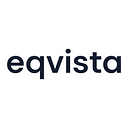An Introduction to Valuation Methods: Understanding the Basics
Fundraising, employee stock options, and meeting regulatory criteria all necessitate an accurate valuation of a firm. Several methods outside the 409A assessment can calculate fair market value. Alternatives to the 409A valuation for startups are discussed in this article, such as venture capital valuation, the Comparable Transactions Method, the Scorecard Valuation Method, the Risk Factor Summation Method, and the First Chicago Method.

Every startup is unique, so it’s essential to consider alternative valuation methods that align with your specific business model and industry.
VC valuation
Venture capital valuation is a delicate art that combines financial analysis, market dynamics, and visionary foresight to assess the true potential of disruptive startups.
Venture capital (VC) valuation assesses the worth of a startup, often considering factors like market potential, team, and revenue projections. Venture capitalists are able to give timely and fluid assessments because of their experience assessing startups and familiarity with market dynamics. Growth potential, financial requirements, industry insights, and market perception are the four main factors that go into a venture capital valuation.
Venture Capital valuation offers entrepreneurs a more personalized method of estimating their worth, which is particularly helpful when looking for investment and navigating the dynamic startup market.
Comparable Transactions Method
The Comparable Transactions Method provides valuable insights by drawing parallels between similar deals in the market, allowing us to gauge the fair value of a startup based on real-world transaction data.
The Comparable Transactions Method assesses a company’s value by comparing it to similar transactions in the market. To do this, we look at the valuations of previously acquired or publicly traded firms that are similar to the startup. It gives a market-based valuation for the firm by looking at deals involving similar companies.
Considerations include financials, projections for growth, market size, and the strength of the competition. As an alternative to the 409A valuation for fundraising, acquisitions, and other financial objectives, this method allows companies to establish their worth based on actual transactions in the sector.
Scorecard Valuation Method
The Scorecard Valuation Method evaluates a startup’s worth by assessing various factors and assigning scores for each. The startup’s management, market potential, product differentiation, and competitive edge are all evaluated and given points out of a possible 100. To determine a startup’s value, compare these rankings with those of other similar businesses in a database.h
The Scorecard assessment Method delivers a thorough and individualized assessment for startups by employing a systematic approach and considering many aspects. It’s useful for making finance, partnership, and overall company value decisions since it sheds light on the business’s strengths and limitations.
The Scorecard Valuation Method offers a systematic and structured approach to assessing the value of a startup, taking into account key factors such as team, market potential, competitive landscape, and traction. It helps investors make more informed investment decisions and provides startups with a benchmark for their valuation.
Risk Factor Summation Method
The Risk Factor Summation Method calculates a startup’s valuation by quantifying and summing various risk factors associated with the business. The technique takes into account the startup’s industry, technology, team, market, and competitors to determine the level of risk involved. The entire risk is assessed by giving relative importance to several potential dangers.
Considering and measuring these risks can yield a more complete and accurate estimate of the company’s value. As an alternative to the 409A valuation, the Risk Factor Summation Method takes into account potential risks and uncertainties that may affect the startup’s performance, allowing investors and stakeholders to make well-informed decisions.
First Chicago Method
If you’re looking for an alternative to the 409A valuation for your business, consider the First Chicago Method, often known as the Build-Up Method. This approach to valuing a business integrates qualitative and quantitative research techniques. Using the risk-free rate, the equity risk premium, and any extra premiums for risks unique to the industry, one may get the needed rate of return.
The technique considers the startup’s projected cash flows and growth rates. The First Chicago Method provides a solid framework for startup valuation by including a wide range of characteristics and financial data, allowing interested parties to make an informed and methodical assessment of the company’s value.
Choosing the Right Alternative
There are a number of considerations to consider when deciding whether a valuation method is preferable to the 409A one. Startups in their formative stages may benefit from a VC valuation or the Scorecard Valuation Method due to a lack of data. The Risk Factor Summation Method is useful for risk-averse investors, whereas the Comparable Transactions Method is useful when benchmarking possibilities are available.
Entrepreneurs can choose the most suitable valuation method based on their startup’s stage, industry conditions, and investor preferences, ensuring a tailored and comprehensive assessment.
Get Help with Eqvista
While the 409A valuation has been the preferred option for startups for quite some time, investigating other options might yield useful insights and tailored assessments. Startups looking for an alternative valuation solution can find all they need in Eqvista, the industry-leading platform for cap table administration and valuations. We provide entrepreneurs with the tools they need to make educated judgments about company worth, including VC valuation, analysis of comparable deals, and a summary of risk factors. Contact us today to take charge of the worth of your business.
